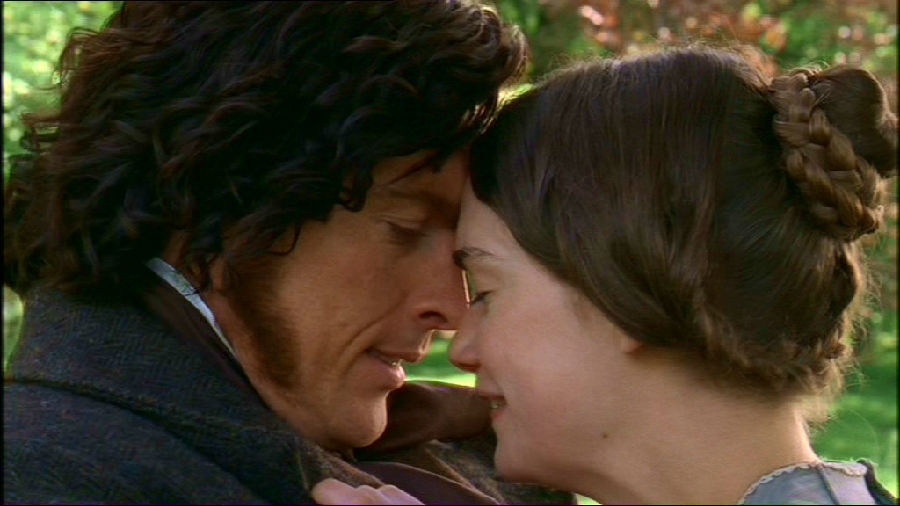Very well! very well! I'll pledge my word on it. You go tomorrow, then?
好呀!好呀!我答应。那你明天动身?
Yes, sir, early.
是的,先生,一大早。
Shall you come down to the drawing-room after dinner?
晚饭后你下楼来客厅吗?
No, sir, I must prepare for the journey.
不来了,先生,我还得收拾行装呢。
Then you and I must bid good-bye for a little while?
那你我得暂时告别了?
I suppose so, sir.
我想是这样,先生。
And how do people perform that ceremony of parting, Jane?
一般人采用怎样的仪式来告别,简?
Teach me. I'm not quite up to it.
教一教我吧,我不大在行。
They say, farewell, or any other form they prefer. Then say it.
他们说再见,或者其他喜欢的方式。那就说吧。

Farewell, Mr. Rochester, for the present.
再见,罗切斯特先生,暂时告别了。
What must I say?
我该说什么呢?
The same, if you like, sir.
一样说法,要是你高兴,先生。
Farewell, Miss Eyre, for the present; is that all? Yes.
再见了。简·爱,暂时告别了,就是这些吗?是的。
It seems stingy, to my notions, and dry, and unfriendly.
在我看来,你好像有点太吝啬、干巴巴、不友好。
I should like something else, a little addition to the rite.
我还想要点别的,一点礼仪之外的东西。
If one shook hands, for instance, but no -- that would not content me either.
比如,握握手,不,那也不能使我满意。
So you'll do no more than say Farewell, Jane?
那你就只说‘再见’了,简?
It is enough, sir. As much good-will may be conveyed in one hearty word as in many.
这够了,先生,这两个亲切的字眼所表达的友好情意,跟许多字里一样多。
Very likely. But it is blank and cool -- 'Farewell.'
很可能是这样,但这既空洞又冷淡--‘再见’。
"How long is he going to stand with his back against that door?" I asked myself.
“他背靠着门会站多久呢?”我暗自问道。












